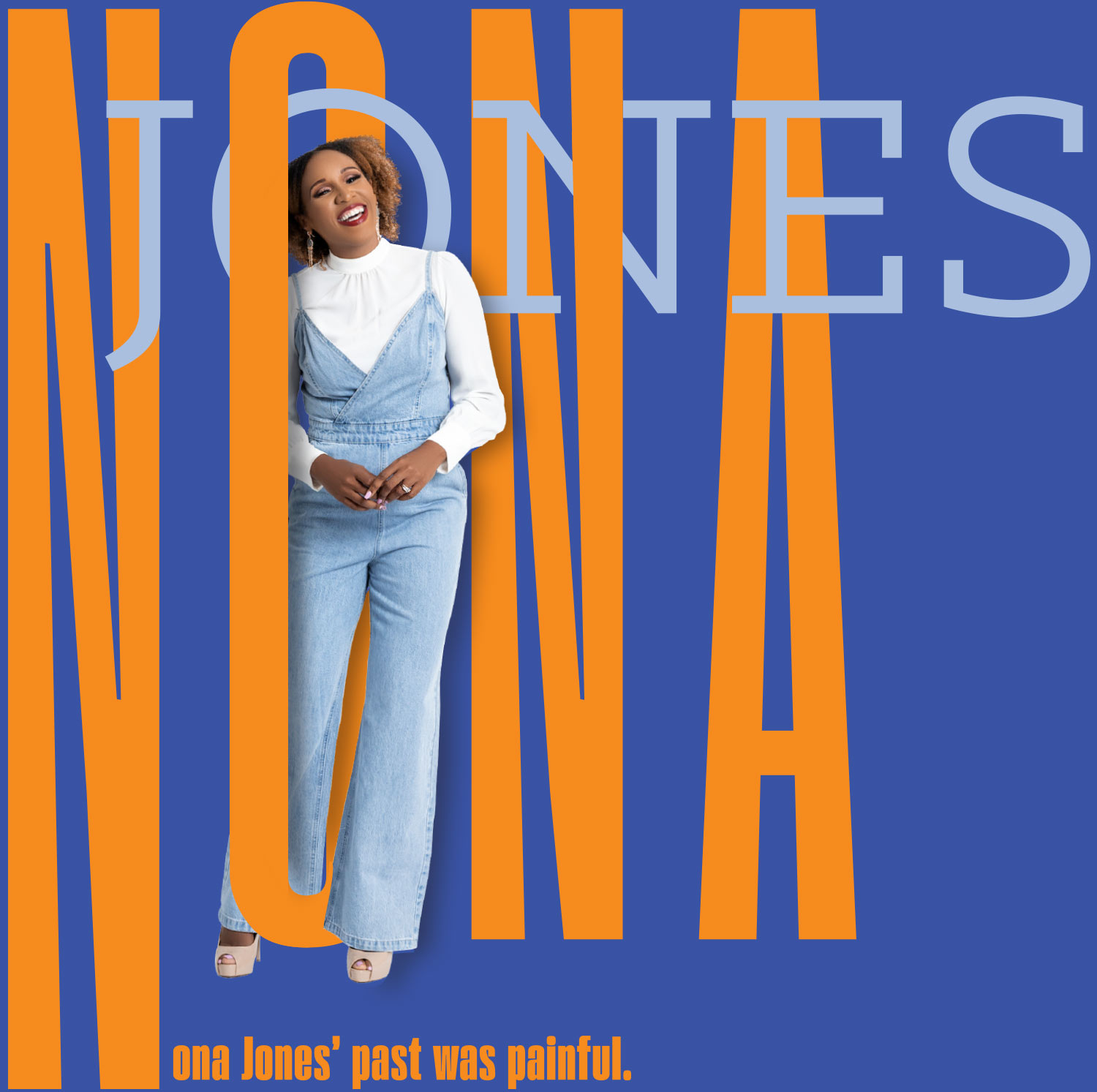
“Because for me,” said Jones in our interview “achieving all the stuff didn’t really matter because I was fundamentally insecure in my identity.”

Jones’ father died before she turned two leaving her mother—who never wanted children—to rear her alone. When mother’s boyfriend sexually assaulted five year-old Nona, he chided her into silence. “She didn’t want you to begin with.”
Two years later, Jones found the courage to tell. Her mother reported the abuse, and the man was arrested and jailed. But, upon his release, mother returned with him home. Jones was to keep quiet, and that meant even through the abuse. She tried to take her own life, twice. And, if adverse childhood experiences were predictive, she was destined for addiction, incarceration, or even premature death.
“I took the assessment—I scored an eight (out of ten). Yeah, so I should not be sitting where I am …”
At age 11, a friend invited Jones to her church. There, for the first time, Jones began to hear about God—someone she didn’t know, or had even heard of before. The pastor said “God would be a Father to the fatherless,” which intrigued her to her core. “When my father and my mother forsake me, then the Lord will take me up,” says the Psalmist (Psalm 27:10).

“When you talk about identity and being secured to who God says I am, it was because of that experience that I gained a vision for my life. Like, I knew I wanted to live up to God’s expectations of me.”
Jones’ very difficult background led her to work with youth, advocating for them in the juvenile justice system, and for teen girls through Florida’s Pace Center. She gets them.
“[W]hen I see a young person acting out, the question I ask is not, you know, what’s wrong with you? But what, what happened to you? What did you see? What have you experienced that caused you to believe that this is how you need to show up in the world?”
Which brings us to Jones’ book, Killing Comparison. From her vantage as both a spiritual leader and spokesperson for the faith-based interests of Facebook, Jones is uniquely positioned to address the impact of social media on the human spirit.
Yet, Facebook didn’t create comparison and insecurity, Jones said. Facebook and social media exposes our insecurities.

Several studies have linked social media use—or overuse—to everything from stress and anxiety, to loneliness, fear of missing out (“FOMO”) and overspending. Negative body image is a particular risk for adolescent girls. But, a 2019 study offered much more qualified or nuanced (PNAS.org) insights.
“[S]ocial media use is not, in and of itself, a strong predictor of life satisfaction across the adolescent population. Instead, social media effects are nuanced, small at best, reciprocal over time, gender specific, and contingent on analytic methods.”

“It’s generally understood and accepted that digital media is a huge contributing factor behind the explosion of mental health, anxiety, and body image issues among all age groups, not to mention bullying,” said Jamie Domm, who formerly directed social media strategy and policy for the Smithsonian Institution and the Adventist Church. She now works as an independent consultant, and along with her husband has started a digital ministry, Angels in the Glen.
“Open your phone, and you’ll have access to endless messages of how we aren’t good enough, who is doing better, and what you should be doing,” said Domm. “Of course it’s all a mask and imposter syndrome is rampant.”
To the extent that these messages are constant and addictively accessible on our mobile devices makes escaping toxic comparison very difficult.

But, even away from social media, she said she found the same dilemma. She tells the story of a best-selling author nervously wondering why an acquaintance’s book climbed higher than hers on the charts. Or, she recounts, she felt the sting of rejection when a woman she wanted to embrace her as a protégé suddenly went ghost on her.
“You are insecure when your identity is secured to an insecure foundation. An insecure foundation is something that is subject to change, is subject to shift.”
Thus, the value we find in educational attainment, or jobs, material things like houses and cars, even marriages are all subject to shift. Secure identity can’t be tied to any of those, Jones said.
“We spend so much time denying our insecurity when we really could spend that time admitting it and getting relief from it by pursuing what God has said in His Word.”

What you see can inspire you, give you life, vitality, energy. It could push you to set new goals, work in a different way, try new things. So just as we inhale, and are nourished and inspired, we can take in healthy information.
On the flip side, says Jones, there are things that “expire” you. When you see these things you suddenly feel like a failure, unattractive, and find yourself hating another’s success. Without inspiration, there’s expiration. You expire. You feel like nothing.
Simple, says Jones: block people you don’t personally know, and who don’t inspire you.”